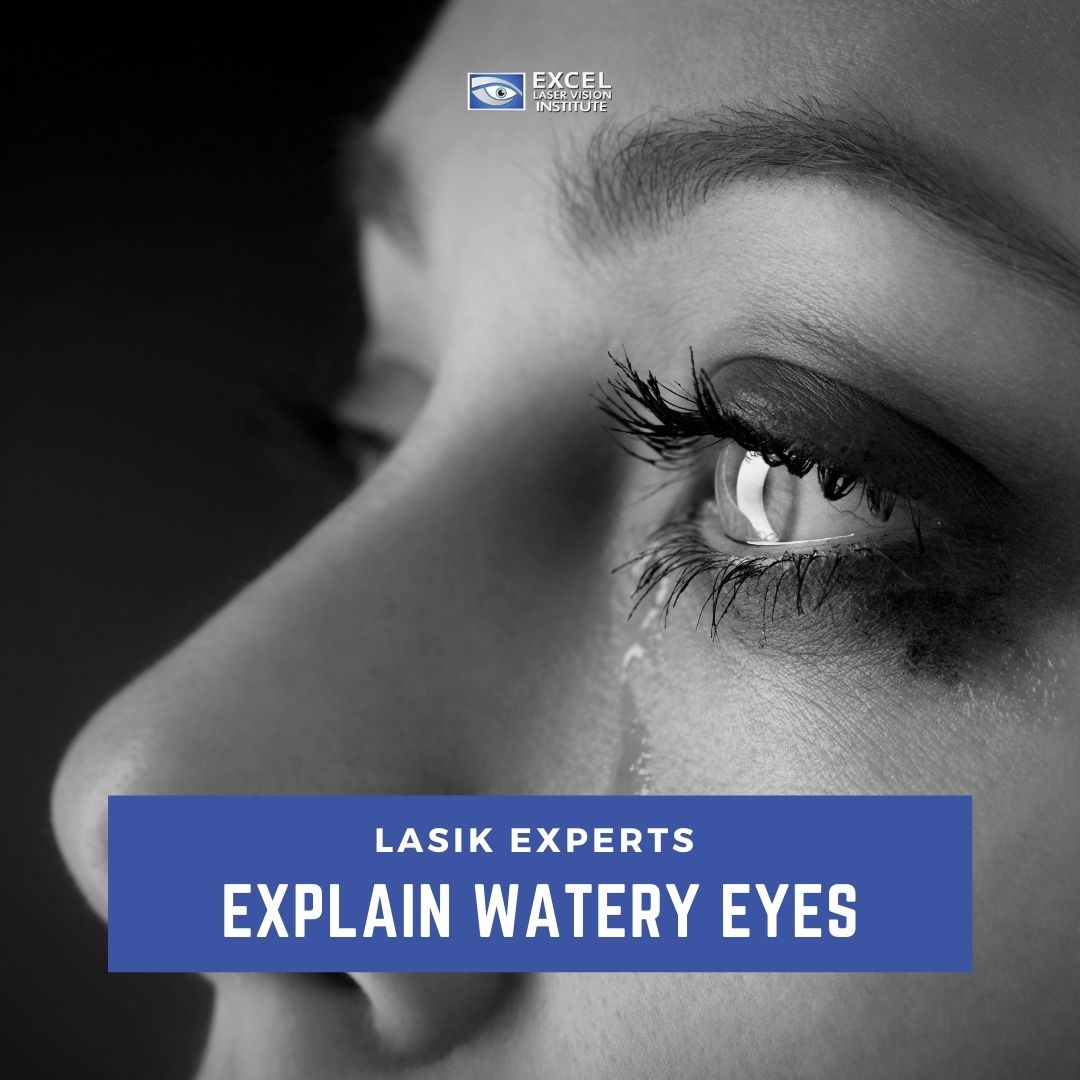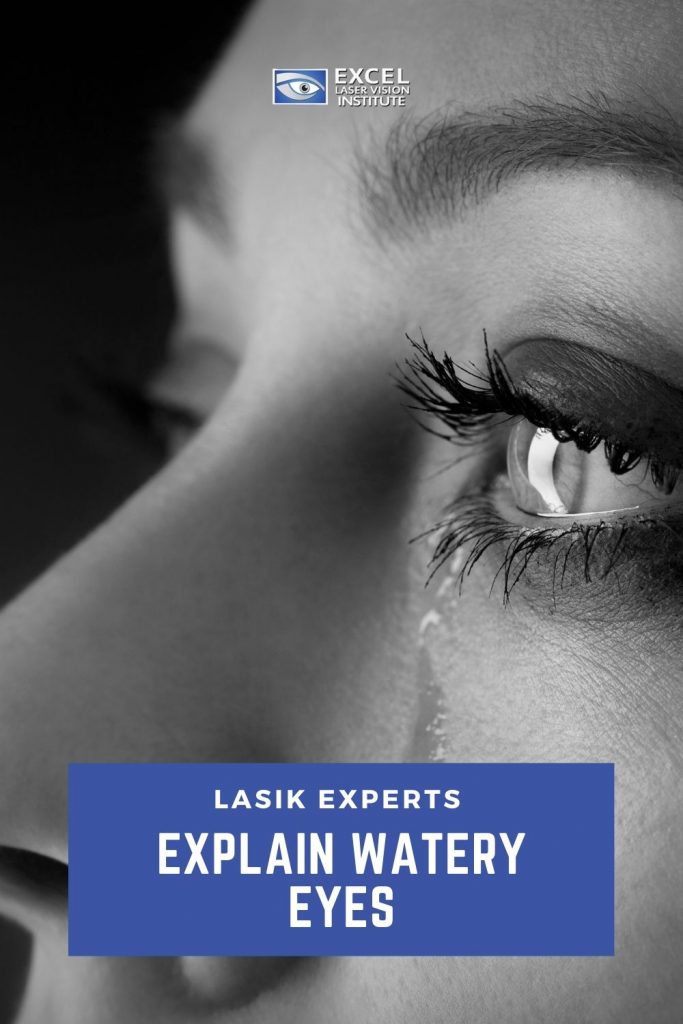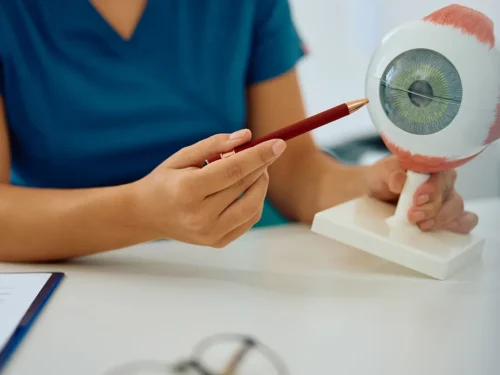
Every once in a while, some of us will experience watery eyes, whether we’re extra tired or laughing hysterically from a joke one of our friends told. This is normal. However, there are some cases in which watery eyes happen without an obvious reason. Eyecare experts from Excel Laser Vision Institute, a LASIK clinic in Los Angeles, are here to explain why we experience this phenomenon and what we can do to improve the condition.

To understand watery eyes, we have to understand how our eye works. The tear glands are especially built to lubricate parts of our eye, like the cornea. This moisture protects the internal structure of the eye and helps filter light. Ultimately, our tear glands ensure that our vision is working properly and that the corneas do not dry out.
Tears are made up of water, fatty oils, and mucus. All three of these ingredients are necessary to coat the cornea, focus our eyes, and sharpen our vision. If our eyes are producing excessive tears, then this means that there is an imbalance within our glands; either producing too many tears or not sufficiently draining these tears (possibly as a result of blockage).
Here are some of the most common reasons for watery eyes:
A Dry Environment
Our eyes will naturally produce more tears as a reaction to a dry environment. Why is this? Well, think of it as an overcompensation. Many people find that using a humidifier can help regulate their tears as well as avoiding direct contact with fans.
Too Much Computer Time
When we’re looking at our phones, computers, and tablets, our eyes are hyper-focused. This can naturally reduce our blink rate, which may then lead to dry eyes. As a reaction to this, our eyes may begin reflex tearing. In order to avoid this, LASIK doctors, particularly Doctor Moosa, recommend taking breaks every 20 minutes to look at something off-screen or rest your eyes.
Contact Lenses
Wearing contacts for an extended period of time can actually cause tears to evaporate more quickly. As a response to this, our eyes will start to accelerate the production of tears. If you’re tired of dealing with this sensation, then you may want to look into getting corrective eye surgery so you can kiss your contacts goodbye.
Makeup Contamination
Eye makeup like mascara, eyeliner, and eye shadow can flake off into the eye and cause irritation. This may cause excessive watering in order to expel foreign objects. While this is not necessarily a bad thing, it can be inconvenient to deal with. Avoid practices like tightlining (applying eyeliner on the inside margin of eyelashes) and always remove makeup thoroughly each day.
Clogged Meibomian Glands
Our eyelids release an oil right along with the watermark which allows our eyes to stay lubricated. When these glands are blocked, it may cause our eyes to create an excess of tears. Eye doctors that perform laser vision correction commonly see this with pink eye, blepharitis, rosacea, and other inflammatory conditions.
Allergic Reaction
Those of us who suffer from allergies know that watery eyes come with the territory. When our bodies are exposed to an allergen, this can cause a release of histamines to combat the allergen. Watery eyes are just a way of our body fighting off irritants with histamine chemicals.
Chronic Dry Eye
While this may seem counterintuitive, dry eyes can actually cause watery eyes. For example, when a person is sleep-deprived, they may experience burning or stinging sensations in their eyes as well as blurred vision, light sensitivity, and eye fatigue. When this happens, our bodies want to go into defense mode. Watery eyes can be a result.



